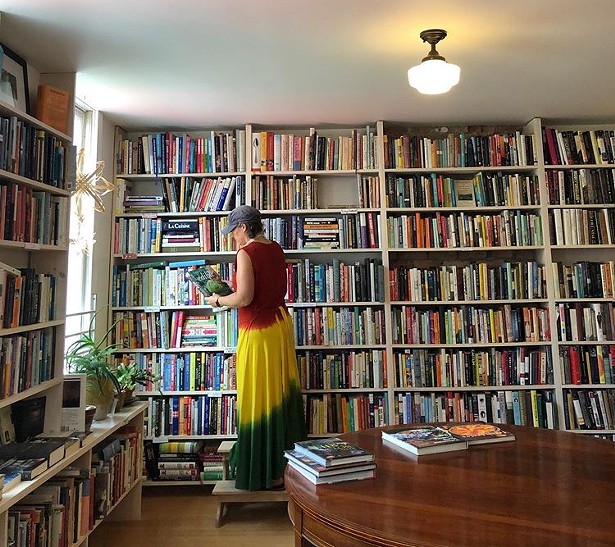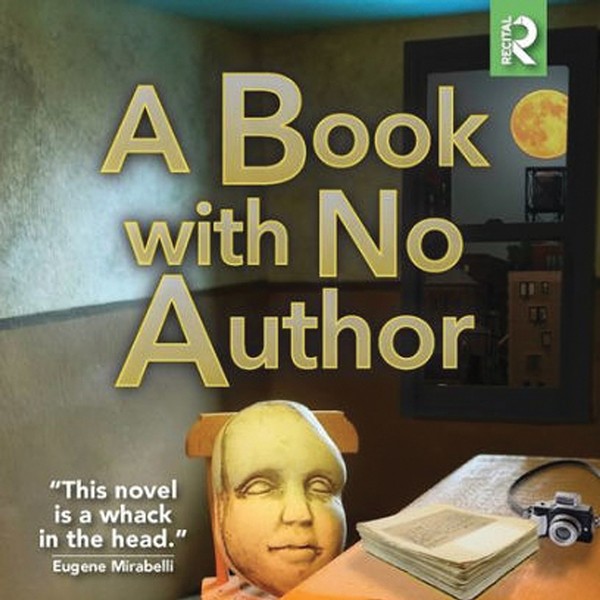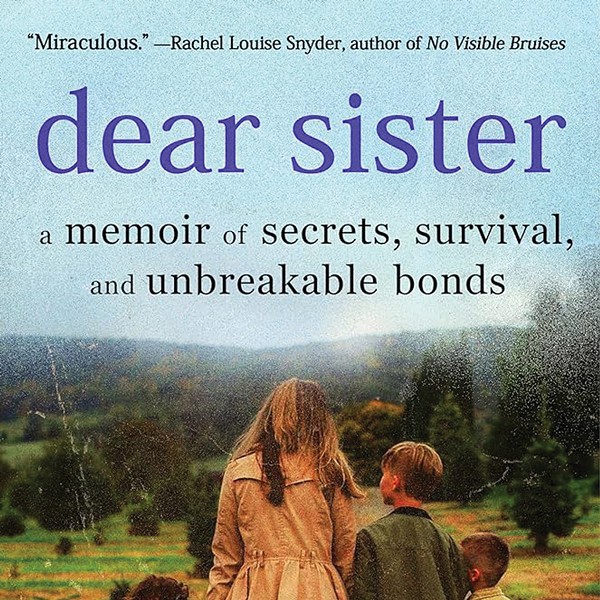Bookstores may not have been deemed “essential” during lockdown, but for many of us stuck at home, reading was paramount, a good book the coveted currency of corona. Despite closings, social distancing, and new sanitation protocols, local independent bookstores have been riding the COVID curve the best they can. Before bookstores were able to officially reopen, they Hudson Valley booksellers everything from delivery service to curbside pick up to boosting their presence on social media, in an effort to keep sales rolling.
Instagram to the Rescue
Despite the age-old adage “don’t judge a book by its cover,” local bookstore owners concur that the visual element of in-person browsing is a huge part of customers’ buying journey. Due to its image-centric nature Instagram was saving grace during the pandemic as bookstores looked for ways to stay in contact with their community and recreate the browsing experience from home. For some of these local bookstores without an online inventory, the instantaneity of Instagram allowed them to publicize what was in stock in seconds.
During quarantine, Kira Wizner, owner of Merritt Bookstore in Millbrook, began posting videos of hot new titles on the shelves, which has provided a near-tactile digital-browsing effect for the community. Although her shop was closed, Wizner continued receiving new inventory, and kept pace on her social media pages. “Book porn” on Instagram has the capacity to capture people’s imagination in a way that e-commerce sites cannot. “I was able to show everybody every puzzle that we had, every coloring book, every craft supply, every indoor toy, every game, every book, every series that they might not have ever gotten to,” she says. “Books that you always wanted to read but never did.”
Wizner has a pandemic-themed table for people who want to dive deeper into the history and lore of epidemics, with books spanning the genres from historical fiction and nonfiction to apocalyptic and fantasy.
Chatting with a knowledgeable bookstore employee can be a crucial part of the buying process for many, and while in-person contact ceased during the pandemic, Wizner still finds the adapted connection she’s made with customers special. “I really do feel like this was a time that, socially, we could really pull together, even though we couldn’t be with each other,” she says.
Manager of Barner Books Abby Chance says their book sales during the pandemic have been “modest, but encouraging,” as their social media efforts went into overdrive in order to bring the virtual-browsing experience to their community.
“Even though we’d always had fun posting interesting new arrivals and glamour shots of the shop on social media before,” Chance says, “it suddenly felt more important to reach a wide range of people with a broad range of interests in an effort to sell books from afar.” Although she hopes the situation doesn’t ever become as dire as it was this spring, Chance appreciated seeing first-hand the value social media could have for the shop.
“We certainly prefer to sell our books (and beer and coffee) in-shop, because the shared community experience is what we love the most,” say Amanda and Anthony Stromoski, co-owners of Rough Draft Bar & Books in Kingston. “But now we know that we have a way to augment sales online, and that we can go back to this in tough times.”
Challenges for Used Bookstores
According to Kristi Gibson, owner of Magpie Books, used bookstores had their own set of challenges separate from new book retailers. For starters, at her Catskill shop, nothing was inventoried, so trying to sell online was nearly impossible. Essentially, she was shut down for three months, selling books here and there via Instagram, until her shop was allowed to reopen under Phase 2.
Chance echoes this frustration. “Bookstores like ours depend on [in-person] browsers, as we don’t have a set menu of items a customer can call in to choose from,” she explains. “The thrill is in the hunt, many times you don’t find the book, but the book finds you. We were always happy to check if a particular title is in stock, but when it was not the customer missed out on the opportunity to explore the shelves and find a different treasure to satisfy their urge for something new to read.”
Used bookstores rely heavily on buying bulk bundles , especially from libraries, but with libraries closed during covid those large book sales temporarily stopped, meaning used bookstore owners had to rely on their community donations to increase their inventory. (Luckily, during lockdown, lots of people had the time to clean and reorganize the entire house, including getting rid of volumes.)
Regarding the scope and resilience of used bookstore inventories, Gibson says it depends largely on the age of the shop. “I've been around for six years, so I'm probably one of the younger used bookstores in the region,” she says. “Bookstores that have been around for a really long time, like 30 or 40 years, often have really deep collections and sometimes have books in storage.”
Anti-Racist and Black Literature on the Move
The pandemic isn’t the only earth-shaking history being made right now. In the wake of George Floyd’s murder and the subsequent wave of protests, local bookstores have been receiving plenty of requests for the anti-racist titles that everyone has been talking about.
Although she has always had a robust social justice section available to the community, Wizner says that the rise in interest for anti-racist books and Black literature is unprecedented in Merritt’s history.
“I was able to get so many books to my customers right away who wanted them,” she says. “We actually have a back up of books on order for How to be an Anti-Racist, which is so exciting.”
Amanda and Anthony Stromoski have been working with educators from Kingston City Public Schools and Radio Kingston on a citywide reading initiative centering around So You Want To Talk About Race, by Ijeoma Oluo, and they’ve already been able to hand over several hundred copies, paid for by a donor, which has allowed the community to gather together for an active discussion on empowering Black lives. Recent, popular anti-racist literature titles at Rought Draft include: How to be an Anti-Racist, by Ibram X. Kendi, White Fragility, by Robin DiAngelo, and Between the World and Me, by Ta-Nehisi Coates.
Again the challenges have been a little different for used book stores. Barner Books’ new proprietor Katherine Spelling says, “The fact of the matter is that our shop mainly sells used books and that makes it unlikely that the high-demand (and largely backordered) bestsellers are in stock at this time. The good news is that we’ve always had an extensive section of books available in our Black Studies section. We’ve always got three to four full shelves in our history aisle that focus on Black history and culture, along with lots of other relevant books by and about Black authors, artists, and musicians that can be found throughout the store. Because folks can’t get lost in our stacks to do that just yet, we’ve been making an effort to highlight those works as much as possible on both social media and in our front window.”
Owner of used-book haven Half Moon Books, Jessica DuPont has almost entirely sold out of all of her anti-racist and Black literature at her locations in Kingston and Tivoli. As a used bookstore, she doesn’t have the ability to make a quick call and place an order for more, but she’s excited to see the growing interest and rise to self-educate regarding the Black Lives Matter movement.
“I think it's really good that people are exploring these topics and broadening their horizons, and I hope that the next step after the reading comes the actions,” DuPont says. “As white people, we're going to have to have some real conversations about what we may have to give up in order for everyone to thrive. I feel like the momentum is really there, and it's exciting and wonderful to see.”
The E-Book Won’t Bring Us Down
Anti-racism education efforts have gone hand in hand with an emphasis on ethical consumption, supporting Black authors and buying from independent bookstores. Despite being able to purchase an e-book from the safety of your home, local bookstores are still moving forward with the backing of their community.
At Rough Draft, book sales are up compared to last year. “We are heartened and humbled by our community's response to the pandemic in their stubborn insistence on buying physical books from us, their local indie bookstore,” the Stromoskis say. “It seemed that there were so many folks who not only wanted ‘real’ books during the pandemic, but they also wanted to make sure that they were doing all they could to keep us alive by buying from us instead of Amazon or other e-services.”
While local bookstores are often price competitive with online booksellers, overnight or two-day shipping sometimes puts online bookstores like Amazon at an advantage in this fast-paced world. But as Wizner says, “What I hope this pandemic has done is reminded us that it's okay to slow down.”



















